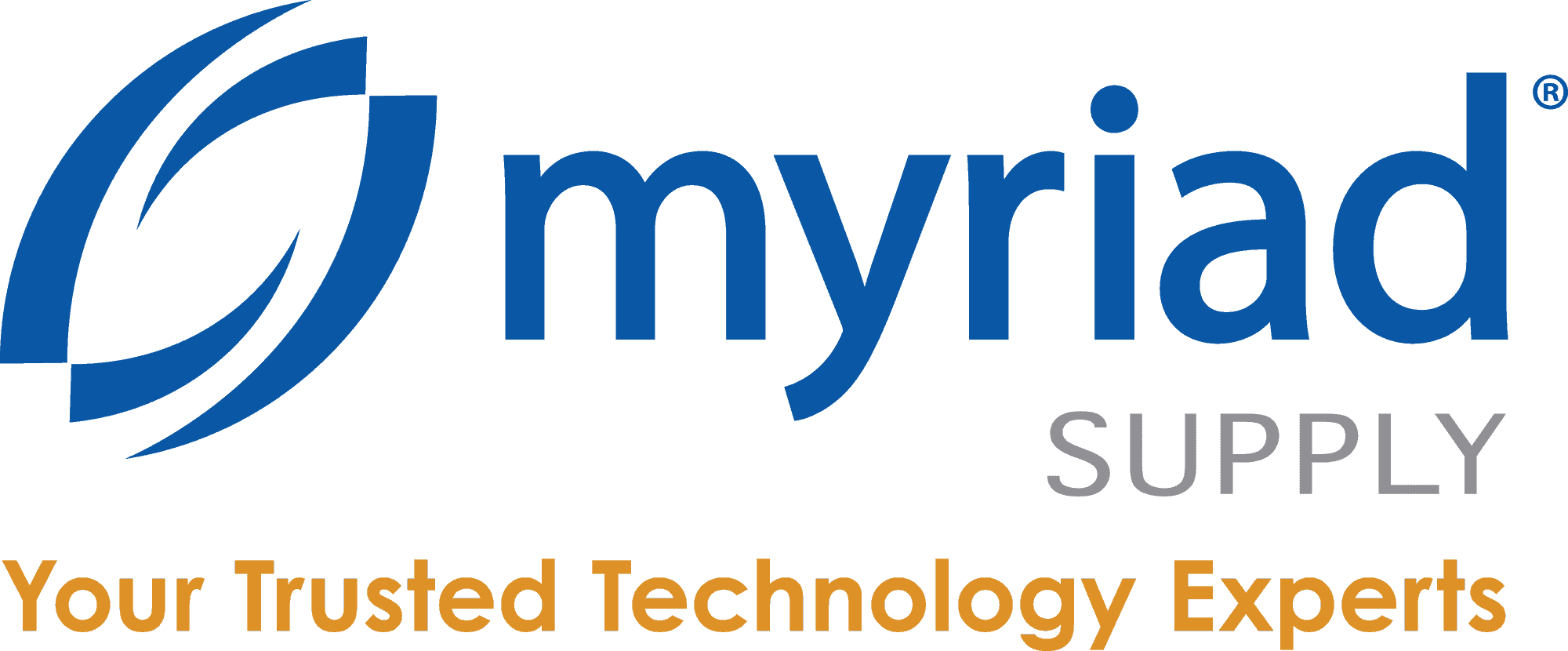It is that time of year again folks, time for the back to back NANOG and ARIN meetings and the annual ARIN election. This means that if your company is involved with the Internet, you should at the very least be paying attention, if not registering to attend one or both of these meetings. If you or your organization is a member of ARIN, you should also be ensuring that you are registered to vote. There are only about 25 days left to chose and register your designated member representative (DMR) – so get on it! As a member of ARIN, it is your right and your responsibility to vote in these elections.
Every year, ARIN’s members vote to elect 2 members to the Board of Trustees (BOT) and 5 Advisory Council (AC) members and this year there is a third BOT seat open. These are the two groups which are directly responsible for setting Internet numbering policy in the North American region. If this is not something you have been paying attention to, you should.
The process is designed so that “Internet number resource policies are developed in an open and transparent manner by the Internet community.” Even so, it is the Board of Trustees who ultimately adopts or rejects such policy: “The Board examines each draft policy in terms of fiduciary risk, liability risk, conformity to law, development in accordance with the ARIN PDP, and adherence to the ARIN Articles of Incorporation and Bylaws. The Board may adopt, reject or remand draft policies to the Advisory Council.” Observe also their recently exercised emergency powers to propose and adopt draft policy themselves when they deem it necessary, and I think it becomes fairly clear that you want to have a say in who the members of this board are.
The AC acts as the bridge between the community and the BOT when it comes to policy development. Under the new policy process (published on 7 January 2009), the AC has been thrust into an even more integral role in policy development then ever before. More than just advisers to the BOT based on community input, the AC is now a much more legislative body: “Upon receipt of a policy proposal, the Advisory Council assumes control of the proposal. The Advisory Council evaluates policy proposals and develops them into technically sound and useful draft policies that, if adopted, will make a positive contribution to the Number Resource Policy Manual.” In other words, the AC now not only advises the BOT, but actively develops all proposed policies. Again – I believe you will agree that choosing who these folks are is very important to everyone whose business relies upon Internet numbers.
ARIN members registered to vote will also be able to cast a ballot for one member of the Number Resource Organization (NRO) Number Council. The NRO NC “advises the NRO Executive Council on proposed global IP number resource policies. Under the terms of an MoU signed between ICANN and the NRO in October 2004, the NRO Number Council also performs the role of the ICANN Address Supporting Organization Address Council (ASO AC).” This election is open to “ARIN’s General Members, NANOG meeting attendees, and ARIN Public Policy Meeting attendees.” This extremely important position is one more reason to ensure that your voice is heard in this years election!
So what are you waiting for? Go check right now to ensure that you or your organization have a dmr who is registered to vote! To verify or update your organization’s DMR information, contact the Member Services Department at [email protected].
Now that I have convinced you to vote (I have, haven’t I?); I should also let you know that I am again running for a seat on the ARIN Advisory Council. I plan to describe in more detail why I am running, what I want to achieve as a member of the AC and why you should vote for me in a later post – after the slate of candidates for all three elections is announced next week. For now I am more concerned that you do vote than who you vote for (honestly – your voice is what keeps this system open). I will however leave you with a sneak peek at my answers to some of the most important questions posed to AC candidates this year. If you are interested, please read on after the jump:
Why do you want to serve on the AC, and what goals do you want to accomplish?
I want to serve on the ARIN Advisory Counsel for a number of reasons. Most of which directly revolve around my passion for the Internet itself. This passion is based on what the Internet provides and also what it represents. I believe that the modern global Internet is a resource unlike any the world has seen before. For the first time in history, knowledge is no longer in the hands solely of the powerful and wealthy. Authors, artists and philosophers have the ability to reach out to much of the world (and to each other) on a scale unimaginable just a few decades ago. You now have the power to seek multiple sources of information, to expose yourself to a plethora of views, slants and takes on almost every topic, both current and historical. We are quite possibly experiencing the dawn of a golden age, another renaissance; a digital awakening to a cultural dialog. ARIN not only facilitates this through its primary task of number resource management, they also foster it with educational programs and information dissemination. Even more important to me is the manner in which ARIN does this; grassroots, consensus based policy developed and approved directly by the community it serves. To me, the what and how combine into something that I can not ignore, something that I want to be a part of. I want to serve on the AC in order to help maintain and promote this wonderful thing we call the Internet in a way that benefits the entire community.
Describe the relevance of your technical and professional experience to serve on the AC.
My desire to become an AC member is backed by over 7 years of professional experience with large and small Internet service providers and over two years of work with an Internet related non-profit. I have worked on network development and design, network implementation and network operation projects and teams. I have worked in service provider, telecommunications and enterprise environments. I have developed and documented organizational standards, policies and procedures. I have also played key roles in creating both for profit and not for profit businesses/organizations from the ground up. All of this combines to give me what I believe to be a fairly unique combination of in-depth technical knowledge of how the Internet operates and skill with policy and process development and documentation, both in for-profit businesses and not-for-profit organizations. It further allows me to view most issues that face the ARIN community through multi-coloured glasses, from many perspectives. As a further note on experience, I have proposed policy to the ARIN NRPM and I have worked in roles that required me to request resources from ARIN – experiences that I feel are very important to being part of the AC.
What differentiates you as a candidate, or makes you uniquely suited to serve on the ARIN AC?
I believe that the experience I outlined above is the key differentiator along with my strong work ethic, dedication, enthusiasm and unbounded passion to see that the Internet continues to grow and to serve humankind for long into the future. Additionally, I find that I am quite talented at finding the middle ground – I am uniquely suited in many cases to find the common threads in seemingly opposing arguments and tie them together into a unified argument or policy. I think that this is one of the primary roles of the AC, to find ways to pass good policy which meets the most needs in the community as possible while minimizing the negative effects as well.
How do you intend to work with and include the originators of policy proposals in the re-writing process, when the AC determines that modifications are needed?
My intention is to engage the originators of any proposal as much as possible. To the extent that they want to be involved, they should be, imo. Only when the originators are unable or unwilling to participate further would I take any kind of unilateral action with a proposed policy.
Do you feel that it’s ARIN’s role to maximize the duration of the pool of unallocated IPv4 addresses, and if so, what mechanisms are appropriate to do so?
No. I do not believe that ARIN’s role is to maximize the _duration_ of the unallocated pool. I do however believe that it falls within ARIN’s stewardship to maximize the _dispersion_ of the final pool of unallocated IPv4 addresses. I generally support current proposals to limit the maximum allocations/assignments in some way as the free pool shrinks. I also support efforts to set some of this unallocated pool aside for specific high-value uses (such as IPv6 adoption as with 2008-5 “Dedicated IPv4 block to facilitate IPv6 deployment”).
Do you feel that it’s ARIN’s role to actively accelerate the adoption of IPv6, and if so, what mechanisms are appropriate to do so?
Due to many organizations continuing negative or heedless attitude towards IPv6 and the looming exhaustion of unallocated IPv4 addresses, I do believe that IPv6 needs encouragement from many angles. I further believe that as an Internet steward, ARIN should be one of those encouragers and I applaud their efforts thus far. As we near exhaustion of the IPv4 unallocated pool, ARIN will likely need to continue to increase its efforts to promote IPv6 adoption. While there is probably nothing ARIN can do to directly accelerate the adoption of IPv6, they are definitely in a position to help dramatically – which is why I am for a continuing increase in IPv6 education and outreach and am open to other ideas, such as helping with an IPv6 bug-tracker, an IPv6 help forum (helping to link experts with those in need) and possibly even IPv6 deployment requirements for future IPv4 allocations and other IPv6 related incentives.
How do you foresee ARIN’s function, scale, or role in the community changing in the future?
I am not convinced that ARIN’s scale or primary function and role will change much going forward, at least not within my three year term and likely not for several such terms. I believe that the Internet will continue to grow for quite some time, meaning that ARIN will continue to handle nearly 150 ASN requests, tens of thousands of SWIPs and plenty of resource requests each month, long into the future. It is possible that over the next 10 to 20 years this will slow and ARIN’s priorities may shift as that happens. Education and outreach will likely become more primary roles and it is conceivable that ARIN would take a slightly more oversight based role at such a point, using the already established consensus based policy process to help the community combat problems that arise.
What are your views on ARIN policies affecting Internet routing, or Internet routing affecting ARIN policies?
The two are inexorably linked. ARIN policies will always have some effect on routing but I think that whenever possible ARIN should take Internet routing into account and attempt to avoid possible conflicts. In most cases, policy should not be used in attempts to directly affect Internet routing as it is rarely the most effective method for doing so – that is the job of the IETF working groups. There are cases however where this is not absolute – ARIN’s work to slow routing table disaggregation through various policies is a great example of using policy to reinforce Internet routing BCPs.
What policy proposals have you been most strongly interested in, and what was your position on them?
I am one of the authors of 2008-7 “Identify Invalid WHOIS POC’s” and I support it as written, I believe that this is a deceptively important topic and I hope that we can demonstrate consensus in Dearborne. [EDIT: 2008-7 was adopted by the BOT this month]
Most recently, I have been very interested in Draft Policies 2009-8 “Equitable IPv4 Run-Out,” 2009-7 “Open Access To IPv6,” 2009-3 (Global) “Allocation of IPv4 Blocks to Regional Internet Registries” and policy proposals 100 and 99 (“/24 End User Minimum Allocation Unit” and “Multihomed Microallocations”). Very briefly, here are my general thoughts on each:
2009-8 – I support the intent of this policy and I think the author has gotten very close in the execution as well. Enabling the largest number of organizations, regardless of size, as we near exhaustion of the unallocated pool of IPv4 addresses seems to me to be the correct path for Internet stewardship.
2009-7 – While as a network engineer I am very concerned with routing table growth, at this point I feel that the need to promote and grow the IPv6 Internet outweighs this and so I support this policy.
2009-3 – I believe that this policy is a great opportunity for ARIN to demonstrate their commitment to stewardship of the entire Internet, not just this region, to the other RIRs. I support this policy as long as it is written in such a way that the ARIN community is able to define what resources will be returned to IANA in subsequent policy.
100 & 99 – I support the intent of both of these proposals (since they share a common intent) but I believe that proposal 99s simpler execution is much closer to the mark. This is a good example of ARIN policy following Internet routing, based on current practices there is no longer a need for ARIN to maintain the restrictions on multihomers.
How do you believe the AC should decide which policy proposals to work on and which to abandon?
Community support. The ARIN policy process must stay a community driven, grassroots, bottom up system.






Thanks for this, Chris, and good luck! It’s always great to see your enthusiasm and continued commitment to the ARIN process. Keep in mind this year is extra special in that there are currently THREE seats open on the Board instead of the normal two.
-Megan
ARIN Public Relations Officer
Very good point Megan, post edited to reflect the third BOT seat open this time around. Thanks for the catch and for your kind words as well!